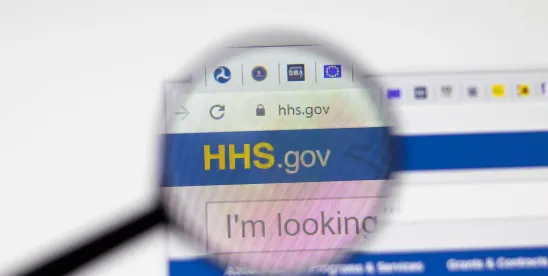On December 5, 2024, the US Department of Health and Human Services (HHS) Office for Civil Rights (OCR) issued a “Dear Colleague” letter reiterating obligations that covered entities have under the May 2024 final rule related to language access requirements under Section 1557 of the Affordable Care Act. Section 1557 prohibits discrimination on the basis of race, color, national origin, sex, age, or disability in covered health programs and activities. The final rule strengthened many protections against discrimination in healthcare, including rules for providing language assistance to individuals with limited English proficiency (LEP) or disability. This Dear Colleague letter had the goal of outlining key requirements to ensure that covered entities provide meaningful language access to individuals in time for the June 5, 2025, deadline for full implementation.
In Depth
HHS used the letter to emphasize its expectations for compliance with key language access requirements, including the following:
- Definition of an Individual With LEP. Covered entities should not assume that because an individual speaks English, the individual is proficient in English. An individual may be competent in speaking English but limited in reading or writing English. The technical nature of healthcare makes it particularly important for covered entities to ensure individuals with LEP have a full understanding of both written and spoken communications.
- Definition of Meaningful Access. Providing meaningful access to individuals with LEP includes consideration of cultural competencies, such as variations in dialects and expressions that may influence accurate translations.
- Language Assistance Services. Language assistance services must be provided free of charge and protect a patient’s privacy and independent decision-making abilities. Interpreters must convey information in such a way that patients understand the consequences of consenting to or rejecting treatment, and in a setting that preserves patient privacy.
- Use of Qualified Interpreters and Translators. Interpreters and translators must maintain patient confidentiality and meet certain regulatory qualifications that demonstrate proficiency in writing and understanding English and at least one non-English language. They also must demonstrate that they can translate effectively, accurately, and impartially to and from English and the non-English language, including any specialized vocabulary and terms, while retaining the tone, sentiment, and emotional level of the original statement. They must adhere to principles of ethics. If an interpreter and individual with LEP know each other, generally a different interpreter should be requested. Covered entities may not require individuals with LEP to provide – or pay for – their own interpreters.
- Use of Bilingual Staff. OCR emphasized that relying on an employee who self-identifies as proficient in the target language is not sufficient to meet the Section 1557 translation requirements.
- Use of Machine Translation. If a covered entity uses machine translations for critical documents, the translations must be reviewed by a qualified human translator to ensure accuracy as soon as practicable. OCR appears to be less concerned about using machine translation when there is no risk of impacting the rights of individuals being served, although the translation should include a warning that it may contain errors.
- Emergency Circumstances. Covered entities should generally not rely on unqualified individuals to provide interpretation or translation services except in two circumstances. First, an unqualified adult or minor may temporarily provide language assistance services while a qualified interpreter is being located if the circumstances involve an imminent threat to the safety or welfare of an individual or the public. In such an instance, when a qualified adult arrives, that person should confirm or supplement the initial communications. Second, if an individual with LEP specifically and privately requests that an unqualified adult (but not a minor) serve in this role, a qualified interpreter should confirm the nature of the request and that reliance is appropriate in the circumstance.
- Notices of Nondiscrimination and Availability. Annually, covered entities must provide a Notice of Nondiscrimination and a Notice of Availability of language assistance and other services to participants, upon request, and must post such notices in physical locations and on the entity’s website, as applicable. The Notice of Availability must also be provided in significant written communications, such as applications, notices of eligibility, and communications related to public health emergencies.
- Language for Notice of Availability. OCR reiterated that the Notice of Availability must be provided in English and at least the 15 most commonly spoken languages by individuals with LEP in the relevant state or states of the covered entity’s operations. For entities operating in multiple states, the Notice of Availability must reflect the most commonly spoken non-English language in each of the applicable states. Top languages can be determined here.
While the Dear Colleague letter is not itself legally binding, such letters are infrequently issued, suggesting that HHS is focused on applying and enforcing the language access provisions of Section 1557. Whether this level of focus remains a priority for the next presidential administration is yet to be seen. Changes in Section 1557’s language access regulations from the Obama administration to the first Trump administration to the Biden administration were largely administrative rather than substantive, so covered entities would be well advised to continue efforts to implement Section 1557’s language access requirements consistent with HHS’s letter by July 5, 2025.




 />i
/>i

